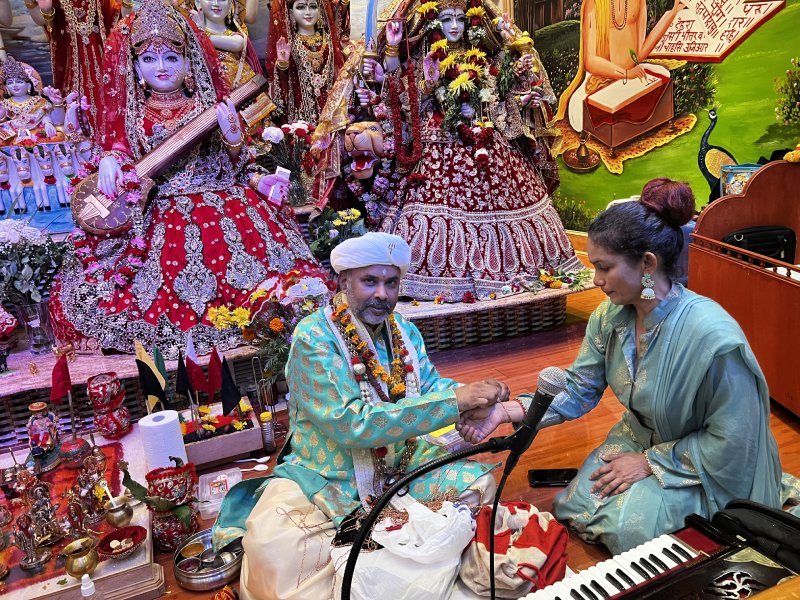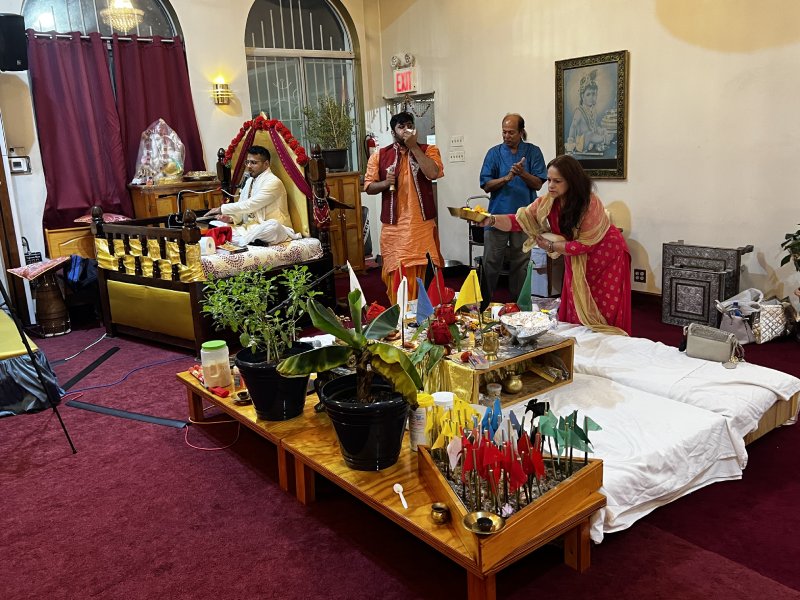The auspicious Fall Hindu festival of Navratri, nine nights of worshipping the feminine aspects of God, which follows Pitrk Paksha (15 days) and precedes Dussehra and Diwali, concluded on the evening of October 23. Hindus globally observed the festival.
Navratri is one of the holiest periods in the Hindu calender when Hindus take to fasting and intense worshipping. Thousands of New York based Guyanese Hindus thronged mandirs over the last nine nights to propitiate Goddess Durga and her Devi reincarnations, Goddess Lakshmi and Saraswati. Guyanese Hindus in the diaspora also flocked to mandirs in New Jersey, Florida, and other states as well as in greater Toronto and London. Guyanese Hindus have continued the tradition of observing Navratri and other festivals in New York, New Jersey, Florida, Minnesota, Georgia, Texas and other places where they have settled. Other Caribbean Hindus joined Guyanese in observing the Navratri festival.
The Navratri festival began on Sunday October 15 and concluded on Monday night October 23. Most mandirs held nightly sessions. Some mandirs continue session for Dussehra which marks the victory of Lord Rama over evil forces. Ramleela celebrations are associated with this period and several temples are holding such celebrations.
Like at home, Guyanese and other Caribbean Temples in America held Ramayana sessions (discourses from the Ramcharatmanas) or Devi Bhagwatam nightly during this period, and many Hindus have been conducting poojas or yajnas at their home. The sessions focused on the attributes of the Goddesses.
Temples throughout the New York metropolitan area, including in New York, were packed with devotees throughout the observances, including a nightly service presided over by popular pandit Rajin Balgobin of New Amsterdam at the Arya Samaj ground (Cheddi Jagan Square) in Richmond Hill. The festival concluded with the celebration of defeat of Ravan (evil doings) also called victory or Vijay Dashmi.
Navratri comes from the word ‘Nav’ meaning nine and ratri means night. It is a festival that is celebrated during the night with prayers, spiritual dancing, kirtan singing, chanting from the holy texts, and a discourse about its meaning by the pandit.
Navratri is the most auspicious period for Hindus during which time they fast and worship Goddesses Durga Laxmi and Saraswati for three nights each to offer protection (Durga), provide wealth (Lakshmi) and guide the devotee to knowledge (Saraswati).
During this time, worshippers tend to fast for the entire period, avoiding meat, sex, fish, eggs and maintain cleanliness in the homes for almost two weeks to maintain purity of mind and body to welcome the Lord in their home. People worship for protection, love and comfort and Goddess Durga offers divine protection and removal of diseases.
During Navratri, devotees normally hold special prayers in the mornings and in the evenings to pay obeisance to the universal mother. In the mornings, Guyanese Hindus offer jaal or dhar, which is a mixture of curd, milk, honey, sugar, neem, cloves, hardi or ground dye, tills, and other sweet spices to appease the God to offer bliss over humanity. This tradition is a continuation of the practice inherited from Guyanese Hindu ancestors going back to 1838 when they first arrived in then British Guiana as indentured labourers. Some invited pandits to conduct puja in their home.
Navratri, which is directly linked to the Hindu festival of Ram Leela, will be followed by Diwali on November 3 and then karthik or Teerat that concludes the year for religious festivals.

